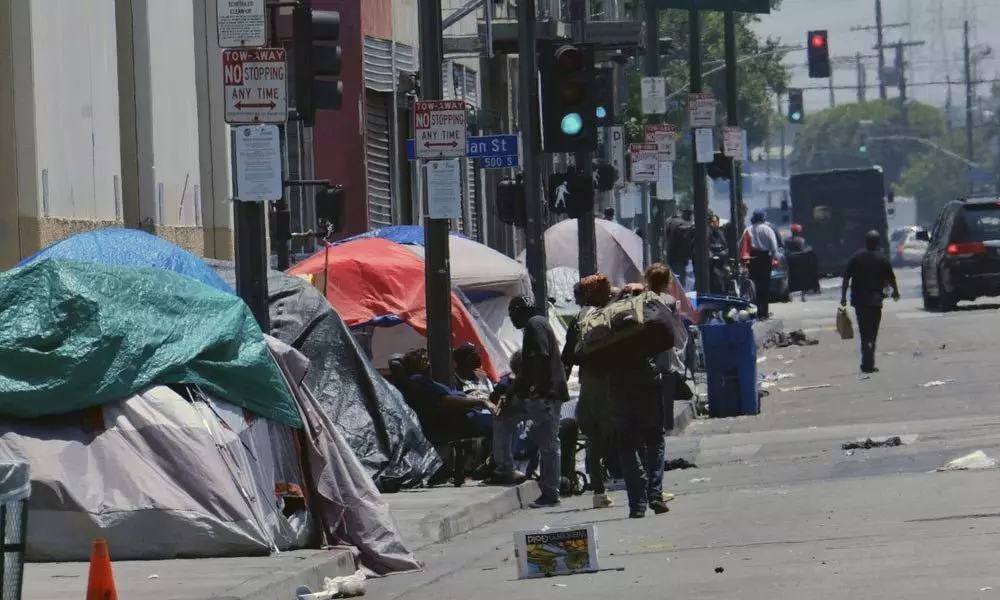California voters may be asked to steer homeless to services

California voters could decide next year whether to create new county courts to steer homeless people to mental health and drug addiction treatment programs.
SACRAMENTO, Calif: California voters could decide next year whether to create new county courts to steer homeless people to mental health and drug addiction treatment programs.
Former Assemblyman Mike Gatto, a Democrat, proposed a ballot measure on Thursday aimed at providing services to people who commit crimes like defecating in public or using drugs.
"When someone breaks the law, it should be enforced. However, certain criminal acts should be treated not as something meriting harsh punishment, but as a 'cry for help,'" the introductory text to his proposed ballot measure reads.
The text still needs approval from the state for Gatto to start gathering signatures, and it would need signatures of roughly 620,000 Californians to make it onto the ballot. As of now, Gatto has no large donors willing to bankroll a signature collection campaign, but he hopes to attract some.
His proposal comes as California is in the throes of a worsening homeless crisis, with a growing number of people living on the streets in cities such as San Francisco and Los Angeles, where Gatto is from. But it met quick criticism from some, who argued it would take away power from counties to decide how best to serve people and would effectively institutionalize people.
"The initiative is an embarrassing attempt to make California more visually appealing to those who have no interest or knowledge in addressing the root causes of what is happening to people in our state and country," the Western Center on Law and Poverty, a nonprofit legal organization, wrote in a statement.
Gatto's proposed measure would require every county with more than 100,000 people to set up a specialized court that can steer people to services. Anyone arrested for committing crimes ranging from indecent exposure to defecating on public transit could be sent through the court if their behaviour is determined to be a result of economic hardship, mental health or drug addiction.
The courts would then help people access housing, counselling and treatment or mental health services and prescription drug help.
Gatto said he views the measure as primarily targeting people who are suffering from mental illness rather than people who are on the streets for other reasons, like economic hardship.
He's proposing taking funding from the "millionaire's tax" that Californians approved in 2004, which taxes income of more than $1 million at 1%, sending the money toward mental health programs. Twenty per cent of that money would go to the county courts under his proposal.
The state has faced criticism in part for being slow to deploy money under the Mental Health Services Act, which brings in well over $1 billion annually. The state auditor faulted a commission overseeing the money for inadequately evaluating the effectiveness of county programs.
Many California police officers are struggling to enforce laws affecting people living on the streets, he said.
"A lot of these police forces are demoralized," he said. "They want to do something about the problem but it's a matter of giving them the resources and the place to put those individuals."
Eduardo Vega, a former commissioner on the oversight body, said the idea of diverting homeless people away from the criminal justice system is a good one.
"It's not a crime to be homeless, and it's not a crime to have a mental health condition," he said.
But he said spending money from the "millionaire's tax" on county court systems might conflict with the law governing how it can be used.
California's 58 counties are the "front line" providers for mental health services, said Graham Knaus, executive director of the California Association of Counties. The organization is still reviewing and has not taken a position on the proposed ballot measure, but he said counties already work closely with the state and local government to provide services to homeless people with mental health needs.
Jonathan Sherin, director of Los Angeles County's Department of Mental Health, offered a blunter assessment, saying counties need more money, not new requirements on how to spend what they already have.
"Tell us the outcomes you want us to achieve with the money and get out of our way or facilitate our success," he said. "Do not tell us what to do with the money because you're not down here trying to get it done."








